HS-ETS1-2
Design a solution to a complex real-world problem by breaking it down into smaller, more manageable problems that can be solved through engineering.
-
 Materials Science
Materials ScienceNew cloth cools you when you’re hot, warms you when you’re cold
Scientists 3-D printed the new fabric, which has even more tricks up its sleeve — such as conducting electricity and resisting radio waves.
-
 Environment
EnvironmentWe all unknowingly eat plastic, which may host toxic pollutants
In the environment, plastics attract all types of toxic chemicals. If ingested, new data show, chemicals on those plastic bits may harm the gut.
-
 Materials Science
Materials ScienceEngineers borrow a tree’s cellulose to toughen new materials
Cellulose gives plants their strength. Engineers are turning this renewable, environmentally friendly resource into brand new materials.
-
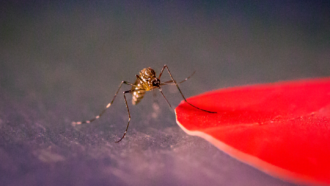 Animals
AnimalsMosquitoes see red, which may be why they find us so appealing
Mosquitoes not only see colors, but also prefer certain ones, such as the hues of human skin.
By Laura Allen -
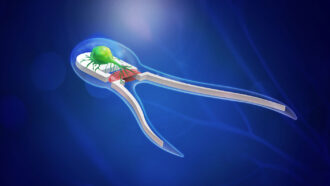 Tech
TechRobots made of cells blur the line between creature and machine
Scientists are using living cells and tissue as building blocks to make robots. These new machines challenge ideas about robots and life itself.
-
 Tech
TechA new device uses atoms’ quantum weirdness to peer underground
Quantum sensors like this one could monitor magma beneath volcanoes or uncover archaeological artifacts.
-
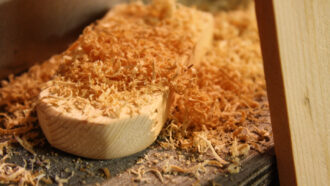 Materials Science
Materials ScienceA disinfectant made from sawdust knocks out deadly microbes
It’s made by pressure-cooking sawdust and water, is cheap and easy to make — and could lead to greener cleaning products than chemicals used today.
-
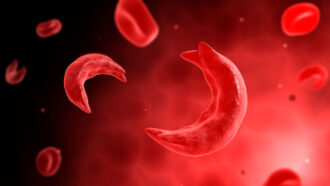 Health & Medicine
Health & MedicineSickle-cell gene therapies offer hope — and challenges
Doctor Erica Esrick discusses existing treatments and an ongoing clinical trial for a gene therapy to treat sickle cell disease.
-
 Humans
HumansThe earliest known pants are surprisingly modern — and comfy
This 3,000-year-old garment was not only stylish but also functional. By recreating it, scientists also unraveled its complex and multicultural origins.
By Bruce Bower -
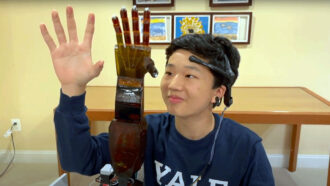 Tech
TechTeen inventors say: There’s got to be a better way
Finalists in the 2022 Regeneron Science Talent Search are revamping prostheses, earthquake safety systems and air travel.
-
 Environment
EnvironmentSatellites find big climate threats — ultra-emitters of methane
Eyes in the sky show many of the worst methane emitters are in countries that produce a lot of oil and gas, such as Russia and the United States.
-
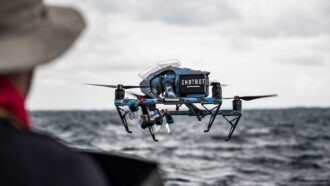 Tech
TechThese flying robots protect endangered wildlife
Flying drones make conservation work much easier. Around the world, drones and artificial intelligence help scientists study or protect endangered animals.